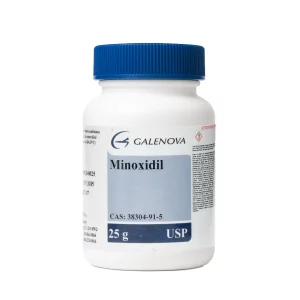Your cart is empty.
Your cart is empty.
Type 2 diabetes is a chronic condition marked by insulin resistance, leading to high blood sugar levels. Unmanaged, it can cause serious complications. Victoza, a diabetes medication, may support cognitive health by improving insulin sensitivity and reducing inflammation. Research suggests it positively impacts brain function and memory, particularly in individuals with diabetes, offering potential cognitive benefits.
In addition to its potential cognitive benefits, Victoza heart benefits have also been shown to have a positive impact on a patient’s overall health. Understanding the effects of Victoza on both cognitive and cardiovascular health is essential, as it may provide valuable insights into the management of diabetes and the prevention of cognitive decline. Investigating Victosa’s impact on cognitive function is crucial due to the link between diabetes, cognitive decline, and dementia. Through the link https://elivena.com/product/victoza-prefilled-pen/ dicover the numerous health benefits of Victoza.
Victoza is a prescription medication specifically designed to manage type 2 diabetes. It contains the active ingredient liraglutide, a glucagon-like peptide-1 (GLP-1) receptor agonist. Liraglutide works by mimicking the natural GLP-1 hormone, which helps to regulate blood sugar levels. By enhancing insulin production and reducing excess sugar in the blood, Victoza helps patients with type 2 diabetes achieve better glycemic control.
Victoza, containing liraglutide, works by boosting insulin production, reducing excess blood sugar, and slowing digestion. This helps regulate appetite, contributing to overall metabolic health. For individuals with diabetes, Victoza provides a valuable treatment option, improving glycemic control and reducing the risk of complications. By slowing digestion, Victoza also helps reduce post-meal blood sugar spikes.
Research reveals a significant link between diabetes and cognitive function. Patients with type 2 diabetes are at a higher risk of cognitive decline, which can impact daily life. However, managing blood sugar levels through effective diabetes care can help slow cognitive decline. By controlling diabetes, individuals can protect their brain function and reduce the risk of cognitive impairment over time.
Uncontrolled diabetes can harm the brain function in the following ways:
Research reveals a significant link between diabetes and dementia risk, with individuals having diabetes showing a higher likelihood of developing Alzheimer’s disease. Maintaining stable blood sugar levels is crucial in supporting long-term brain health, potentially preventing or delaying the onset of dementia. Effective diabetes management may be key to protecting cognitive function.

Emerging research suggests Victoza, a diabetes medication, may have neuroprotective benefits, shielding brain cells from damage. Researchers are investigating its potential to slow cognitive decline. This can have a potential impact on neurodegenerative diseases, offering new hope for cognitive health.
A groundbreaking study presented at the Alzheimer’s Association International Conference revealed the following key findings:
Brain imaging studies revealed promising results for patients taking liraglutide. MRI scans demonstrated reduced brain volume loss, indicating potential benefits in preserving brain structure and function. This suggests that liraglutide may have neuroprotective effects, supporting cognitive health and potentially slowing the progression of neurodegenerative diseases. Further research is warranted to confirm these findings.
Victoza’s benefits may extend beyond diabetes management, potentially safeguarding brain function. Researchers propose that its metabolic effects may have a positive impact on neurological health. By influencing insulin sensitivity and glucose metabolism, Victoza may help shield the brain from damage, offering a promising avenue for protecting cognitive function and overall brain health.
Victoza’s potential cognitive benefits are multifaceted:
Enhanced insulin sensitivity may have a profound impact on brain function, leading to improved mental clarity and focus. By stabilizing blood sugar levels, individuals may experience reduced brain fog and cognitive fatigue, enabling them to stay mentally sharp and focused throughout the day, and potentially improving overall quality of life.
Although Victoza’s cognitive benefits show promise, further research is necessary to confirm its effectiveness. Scientists are actively investigating its potential role in preventing Alzheimer’s disease and promoting overall brain health. Several ongoing studies are being conducted that aim to shed more light on its therapeutic applications
Ongoing clinical trials are examining Victoza’s impact on memory and cognitive decline, exploring its potential benefits beyond diabetes management. As research unfolds, scientists may uncover new applications for Victoza in promoting brain health, potentially opening doors to innovative treatments for cognitive impairment and neurodegenerative diseases.

While Victoza’s primary approval is for diabetes management, its potential cognitive benefits are being explored. Individuals concerned about brain health should consult with a healthcare provider to discuss treatment options and determine the best course of action for their specific needs.
Clinical studies conducted suggest Victoza may improve memory by reducing inflammation, enhancing insulin sensitivity, and promoting brain health. However, more research is needed.
Victoza may improve brain health by reducing inflammation, enhancing insulin sensitivity, and protecting the brain cells.
Victoza is being researched for potential Alzheimer’s benefits, but it’s not currently approved for this use.
Research suggests Victoza may help prevent cognitive decline by reducing inflammation, improving insulin sensitivity, and promoting neuroprotection, but more studies are needed for conclusive results.
Consult your doctor before using Victoza for cognitive benefits, as it’s mainly used to treat diabetes.
Batista, A. F., et al. (2018). The diabetes drug liraglutide reverses cognitive impairment in mice and attenuates insulin receptor and synaptic pathology in a non-human primate model of Alzheimer’s disease. The Journal of Pathology, 245(1), 85–100.
https://pmc.ncbi.nlm.nih.gov/articles/PMC5947670/
Cheng, H., et al. (2022). Enhancement of impaired olfactory neural activation and cognitive capacity by liraglutide, but not dapagliflozin or acarbose, in patients with type 2 diabetes: A 16-week randomized parallel comparative study. Diabetes Care, 45(5), 1201–1210.
https://diabetesjournals.org/care/article/45/5/1201/144697/Enhancement-of-Impaired-Olfactory-Neural
Imperial College London. (2024, July 31). Weight-loss drug may slow Alzheimer’s decline. Imperial News.
https://www.imperial.ac.uk/news/255214/weight-loss-drug-slow-alzheimers-decline/
National Cancer Institute. (2024). Evaluating the impact of liraglutide on improving cognitive performance in obese patients with multiple sclerosis, acute leukemia, or long-COVID. Clinical Trials.
https://www.cancer.gov/about-cancer/treatment/clinical-trials/search/v?id=NCI-2024-06312
ALZFORUM. (2024). Liraglutide. Therapeutics.
https://www.alzforum.org/therapeutics/liraglutide


Minoxidil 25mg - Oral vasodilator for blood pressure management. Cardiovascular foundation support, pharmaceutical-grade standards, expert monitoring required.

Acarbose 50mg 120 Tablets - Gentle introduction to glucose control. Three-times daily with meals, precision-formulated tablet strength.

Dasatinib 20mg 60 Tablets - Flexible pediatric-strength dosing option. USP standards compliance, anytime administration, gradual increase capability.
Unlock savings on bundles and elevate your online experience today!